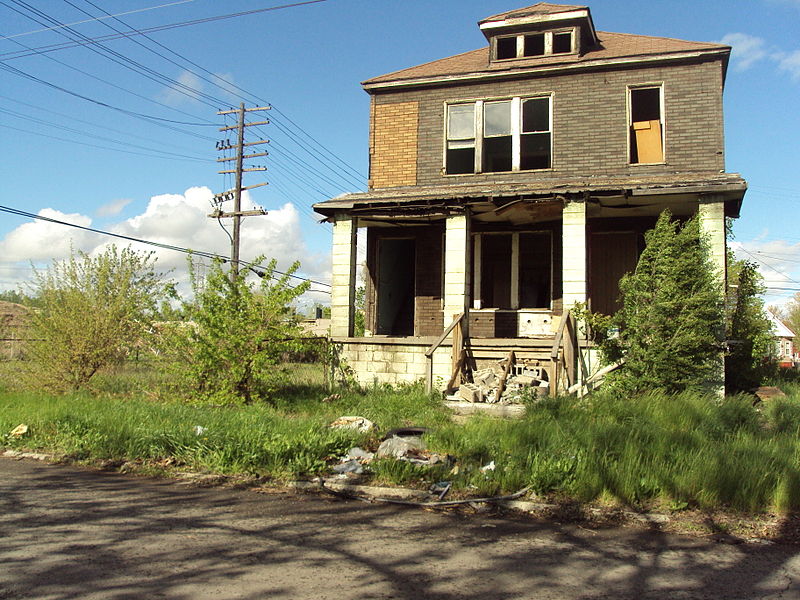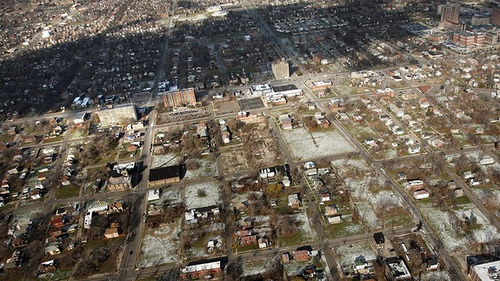Holy Fucking Shit
{category_name}
The auto industry wins, workers lose
The set-up
Workers in Detroit, and elsewhere in the auto industry, were a shining example of what labor militancy can accomplish. Through decades of direct action and union organizing, they had managed to secure decent pay, workplace safety measures, health care, and pensions. Auto manufacturers had resisted this every step of the way (including through automation), and when the workers prevailed, owners responded by relocating production to areas with a less empowered labor base. They repeated this process until they succeeded in almost completely de-industrializating the city of Detroit. And those workers who remained got the message: make concessions or lose your job.
The scandal
With the bloodsucking labor unions finally off its back, the auto industry promptly brought itself to the brink of failure. By now, it was harder to blame workers (though they still did). But no, their own sheer incompetence led them to, for example, refuse to make more fuel-efficient cars despite consumer demand and steadily rising oil prices. American manufacturers were losing market share to their European and Asian counterparts (healthy capitalist competition), so they asked for a bailout, on the pretext that allowing them to fail would destroy jobs and, you know, possibly even ruin entire cities.
The kicker
They got their $80 billion bailout. Profits recovered—to record rates, in fact—while jobs and wages continued to plummet, because the corporate welfare not only didn't include any protections for workers, it actually came with job cuts and wage concessions. In other words, the bailout worked exactly as intended, transferring wealth to the owners of the auto industry (and the financial firms that facilitated its recovery) while thoroughly killing the gains the workers of Detroit had made. This proves once again that corporate subsidies are not investments in economic growth, but a transfer of wealth to their owners, which never, ever "trickles down" to the rest of us.
The banks win, homeowners lose
The set-up
We all know the story of how the banking industry deliberately extended mortgages to people it knew could not repay them, so that it could bundle those mortgages, sell them to investors, and then bet against them. Detroit was a veritable showcase of predatory lending, to such an extent that "Between 2004 and 2006, a full 75 percent of mortgages issued in Detroit were subprime."
The scandal
We also all know the story of how the banks got bailed out, with the $700 billion in TARP funds going not to homeowners, not even to the investors (like teachers’ pensions) who lost on that rigged deal, but toward covering the banks' own bets against the toxic investments they had peddled. Truly amazing.
The kicker
Of course the banks—whose profits have also rebounded to record rates—still get to foreclose on people. But in Detroit they do so with an added insult. After kicking the homeowner out, they walk away from the foreclosure process. This saves them the cost of the foreclosure proceedings, and it leaves the tax bill for the house in the now-homeless owner's hands. Meanwhile, the city is left holding the bag for an abandoned house rapidly falling into ruin. It's as if the natural depopulation that comes with de-industrialization wasn’t happening fast enough, so the banks pitched in to emptying Detroit, through a half-assed foreclosure process whose only goal seems to be eviction. One-third to one-half of the city’s lots now sit empty, by the way, and the municipal government is officially withdrawing services from entire sections at a time.
The creditors win, citizens lose
The set-up
Detroit lost its tax base through the orchestrated de-industrialization and fraud described above, which pushed it into borrowing in order to maintain its services and infrastructure. But the city didn't borrow all $19 billion it now owes. The debt ballooned after a series of interest rate swaps, which locked Detroit into higher than necessary interest payments. "[T]he banks carried out what amounted to predatory lending against the city itself," with the result that now, every month, besides paying firefighters’ salaries and whatnot, and servicing its debt, Detroit also has to just hand a bunch of money directly to the banks that manipulated them into the swap (and, lest we forget, manipulated the interest rates themselves).
The scandal
As early as 1990, Michigan began passing legislation to hand governance of Detroit and other cities in financial crisis to an unelected "emergency manager." This was done precisely on the understanding that democracy would have to be suspended in order to enact the kinds of measures that no population would agree to, such as suspending union contracts, reneging on pension commitments, and cutting necessary services.
The kicker
That’s what Detroit's declaration of bankruptcy is about. It is a way to circumvent the democratic process as well as all legal challenges to what is about to go down. The city is indeed now in the hands of an emergency manager, Kevyn Orr, who is mustering all the rhetoric of economic necessity to go after pensions and city services, as well as the city's art collection—but not, of course, the banks or investors who own the city's debt (which he is mandated to pay back in full). Orr's role is to accomplish one last vampiric push on behalf of capital, including such schemes as selling off the city’s assets, and privatizating its water and emergency services. And in case there was any doubt that this has nothing to do with fiscal responsibility, the state recently announced a half billion dollar subsidy to build the Red Wings a new arena.
Look at Detroit, and you see the truth behind the utter fantasies we constantly recycle. Corporations don't create jobs, they kill them in their search for wider margins. Banks don't facilitate homeownership, they speculate against it. And government doesn't represent the will of the people, it overrides that will on behalf of narrow, private interests. This is how capitalism and class warfare work, always. It's just a little more obvious in the Motor City.
Thumbnail image is from here.


